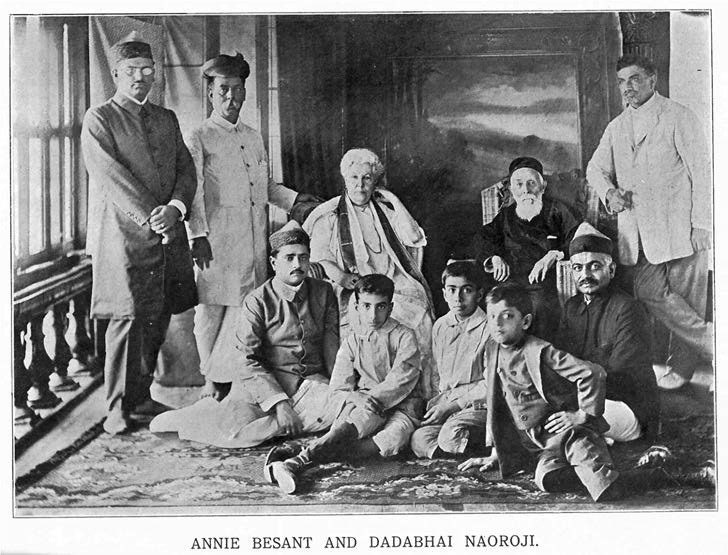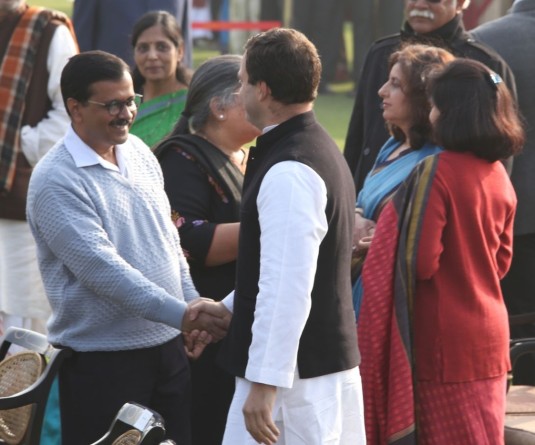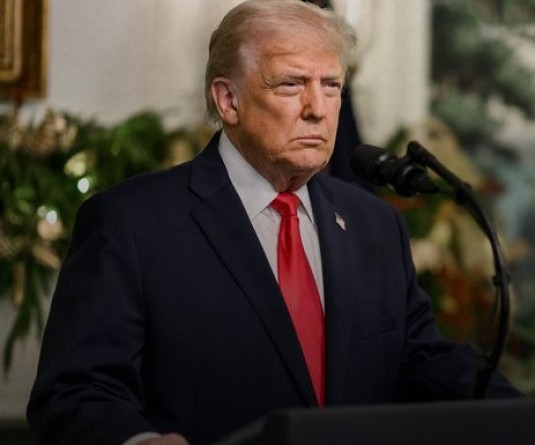
BY VISHNU MAKHIJANI
New Delhi, July 24 (IANS) He was one of the early architects of global anti-colonialism, a co-founder of the Indian National Congress that he headed thrice and the first Asian to be elected to the UK's House of Commons. His call for 'swaraj' echoed around the world and prompted Mahatma Gandhi to anoint him Father of the Nation and Mahatma, says a new biography of Parsi scholar and politician Dadabhai Naoroji (1825-1917) who "punctured British notions that imperialism was a force for good, and built up an astonishing network of international contacts who supported India in the later phases of the nationalist struggle".
"Throughout his life, he mentored generations of Indian students in the UK, encouraged reform- minded Indian princes, dabbled in Bombay civic politics, and consorted with leading European thinkers and scholars. Finally, in the eighth decade of his life, the Grand Old Man demanded 'swaraj', or self-government for India, a declaration that reverberated around the globe. Gandhi summed up Naoroji's career by anointing him as the father of the nation and a Mahatma- titles that in India today are reserved for Gandhi," Dinyar Patel, an Assistant Professor at the University of South California, writes in "Naoroji, Pioneer of Indian Nationalism" (Harvard University Press/HarperCollins).
(Writing in 'Hind Swaraj', Gandhi declared Naoroji to be both "the author of nationalism" and "the Father of the Nation". "Had not the Grand Old Man of India prepared the soil," concluded Gandhi, "our young men could not have even spoken about Home Rule".)
Simply put, Naoroji was a "foundational figure for Indian nationalism. It really is difficult to imagine what the nationalist movement would have been without him. Countless Indians protested aspects of British rule in his day, but Naoroji took these critiques and turned them into a powerful political movement which, by the end of his career, was committed to swaraj.
"He helped found key institutions like the Congress, articulated India's economic and political grievances, punctured British notions that imperialism was a force for good, and built up an astonishing network of international contacts who supported India in the later phases of the nationalist struggle. In Britain, he is considered a pioneer of the Asian community, as he overcame incredible racism to become the first Asian in Parliament," Patel told IANS in an email interview.
Holding that Naoroji "was the first modern Indian leader of national standing", Patel says he was "arguably India's first nationalist" and mentored a variety of younger nationalist leaders earlier in his career by provided guidance to figures such as Pherozeshah Mehta and Romesh Chunder Dutt.
"By the 1890s, he was mentoring well-known figures such as Gopal Krishna Gokhale and Mahatma Gandhi, and also a whole range of figures who are less remembered today. If any intelligent Indian crossed his path, he tried to make a nationalist out of him (and, increasingly, her). He wanted to make Indians aware of their peculiar colonial predicament, and he wanted them to work together to achieve self-government," Patel said.
It also needs to be kept in mind that Naoroji "was not just an Indian leader. He was a significant figure in Victorian Britain, and he was one of the early architects of global anti-colonialism".
While in Britain, he supported the Irish home rule, female suffrage, and the labour movement and unions. He became progressively more socialist in his political views, and by the end of his political career he was practically aligned with the early Labour Party in Great Britain.
"But Naoroji's horizons extended beyond Britain and India. He was the first Indian nationalist to reach out to American anti-colonialists. Furthermore, he took an interest in black political movements, and mentored at least two black West Indian activists in London. Naoroji's ideas, especially his idea about the drain of wealth, had a lasting influence on anti-colonial thought around the world. People like Kwame Nkrumah, the first leader of Ghana, and Eric Williams, a prime minister of Trinidad and Tobago, talked about the drain of wealth. Sukarno of Indonesia said that Naoroji figured amongst the Indian leaders that Indonesians admired, alongside people such as Gandhi, Nehru, and Tilak," Patel said.
How can Naoroji's legacy be perpetuated?
"Personally, I don't believe that renaming roads or putting up statues are effective ways of preserving someone's legacy. Instead, it would be much more fruitful to remember someone like Naoroji by paying respect to his core ideas. From the beginning of his political career until the end of his life, Naoroji was a tireless champion for the spread of education in India. He made one of the earliest calls for free public education in India.
"In Bombay, he helped pioneer female education, and he felt that education was a way to bring about gender equality. If India wants to truly honour Naoroji's legacy, it can do nothing better than to inaugurate new educational institutions and greatly augment primary, secondary, and higher educational opportunities, especially for the poorest citizens," Patel said.
He also noted that Naoriji "would be seriously concerned about the political direction in which India is heading today. Many of the ideas he fought for are now under threat in India: freedom of expression, freedom of the press, religious harmony, and, above all, the unfettered exercise of representative government and democracy".
Naoroji fought against communalism, "and he would be dismayed to see that it has reared its ugly head once more. He held the autocracy of the British colonial government in contempt, and he would similarly oppose today's drifting authoritarianism, as well as the politicization of so many institutions".
"He began his career as a newspaper editor and was familiar with how the Indian press, in the late 19th century, could boldly attack British colonialism. He would be disappointed to see how much of the Indian media today has been reined in, and how freedom of the press has been eroded. Therefore, the best way to remember his political legacy is to reaffirm the liberal political tradition that he represented, and the commitment to freedom and equality which the
Indian nationalist movement stood for. His nationalism was very different from today's nationalism," Patel said.
(Vishnu Makhijani can be reached at vishnu.makhijani@ians.in)






